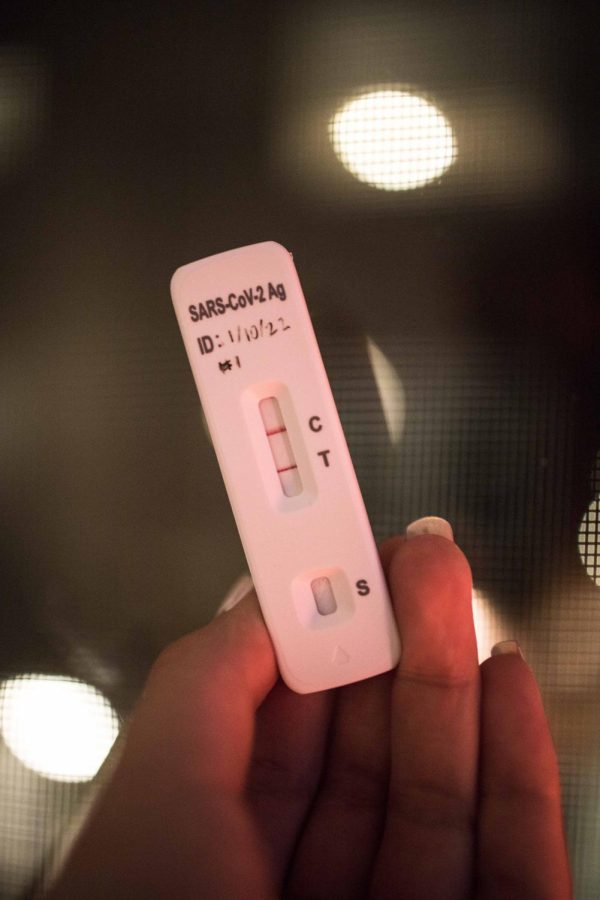Lions, Tigers and Bears—and The Omicron Variant
Just when students hoped that the COVID-19 pandemic was subsiding, the omicron variant emerged, forcing Seattle University to adapt and reassess how to best ensure students’ safety during winter quarter. Although most faculty, staff and students have been relatively flexible regarding these changes over time, there has been a great deal of uncertainty felt amongst everyone.
To help ease the commonly felt threat of contracting the virus, the university has provided proper PPE, testing centers and booster clinics for students and the surrounding community.
Second-year Biology student Sydney Brown shared sentiments about Seattle U’s work to keep the community safe.
“The safety measures the university has invested in are proving to be impressive and helpful. A lot of people I know seem to be more confident in socializing on campus among others,” Brown said.
Since the very early stages of the COVID-19 pandemic, Seattle U was one of the first in the region to make the decision to move all of its classes to an online platform. The university has required face coverings indoors and completed Safe Start Health Checks prior to coming on campus.
In order to return to campus and to an in-person learning setting, Seattle U students must have received two doses of Moderna or Pfizer, one dose of Johnson and Johnson, or the full series of COVID-19 vaccines with emergency use listing (EUL) from the World Health Organization. Members of the Seattle U community could also have received approval for a medical exemption.
Faculty members within the College of Science and Engineering shared that laboratory-based classes and learning outcomes have been greatly affected by the pandemic. However, such concerns have become somewhat eased with in-person learning making a return.
Seattle U Professor of Microbiology Daniel Smith shared his insights and experiences when discussing how he has managed his microbiology courses since 2020.
“When it came to asking for proof of illness from students, the only real time I required to see it was during laboratory classes held in fall quarter 2020,” Smith said. “I believed that most students wanted to be there, in the lab, and participating in the course material. I also got the impression that most students would do everything in their power to be a part of the class.”
To his knowledge, there had not been a single student who had used COVID-19 as an excuse to get out of class or an exam. Problems commonly arose when it came to students making it to the in-person microbiology lab on time. When students called out of the lab due to suspected illness or exposure to COVID-19, parts of the lab couldn’t be made up.
This put a severe strain on his teaching and required laboratory staff to make special accommodations for individuals. As a result, to best handle these situations, Smith had students complete their missed lab the following week.
As the university continues to move forward through the pandemic, students have begun asking questions about the necessity of boosters as well as finding ways to readjust to an online platform for the month of January.
Provost Shane Martin acknowledged concerns about requiring booster shots, urging those who are eligible get a COVID-19 booster shot.
“We recently reviewed the vaccination policy and the most recent public health guidance. A growing number of colleges and universities are requiring booster shots, and the CDC recommends that people stay up to date with their vaccinations, including additional doses for individuals who are immunocompromised or booster doses at regular time points,” Martin said. “While we will have more to say soon, we strongly recommend that everyone who is eligible to get a booster shot do so as soon as possible.”
Taking into account the university’s administrative views on COVID-19, Martin expressed his appreciation of the community’s flexibility, especially considering students have had their courses moved back online for the month of January.
“We’re grateful to our students, faculty and staff for their efforts in adhering to the university’s guidelines during the pandemic. We pivoted to remote instruction during January based on the latest information about the Omicron variant and to minimize disruption to our academic programs and to provide as much predictability as possible for students, faculty and staff. We look forward to resuming in-person classes, as planned, on Jan. 31,” Martin said.
Seattle U will continue to follow the health protocols both recommended as well as put in place by the CDC and local government.











